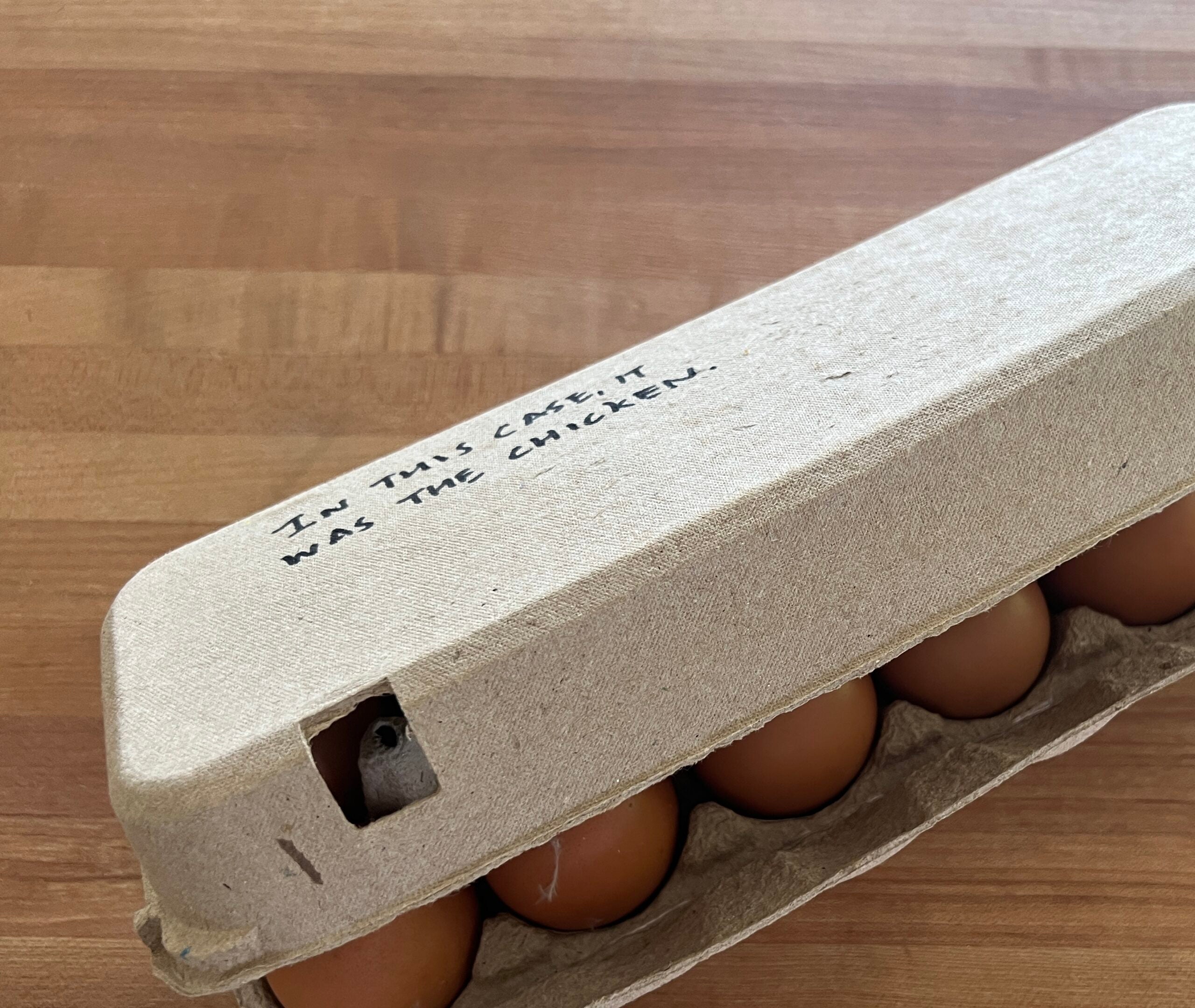The average American eats around 180 eggs a year, which makes sense: Eggs are a versatile, delicious, convenient source of protein. One large egg has 6 of the 65-ish grams a 180-pound person needs in a day, and, like all animal proteins, it’s complete, meaning it’s got all the amino acids our bodies need to function.
When it comes to straight-up emissions, eggs are about as good as animal products get. Producing 100 grams of egg-based protein generates 4.2 kilograms of greenhouse gas. By comparison, beef hits 35.5, shellfish 18.2, other fish 6, and tofu 2. The labels you see on egg cartons have more to do with conditions than carbon. Egg production has the same pitfalls as other animal agriculture. Factory farms (technically, “Concentrated Animal Feeding Operations” or CAFOs) create a lot of water pollution and keep hens and workers in cramped and unsanitary conditions.
As with all animal products, the best way to avoid less-than-savory issues is to eat less. But, in the case of eggs, if your budget allows for a couple extra bucks a week, you can opt for varieties that come from more-humane producers. Here’s how to parse the labels:
Typical: If a carton touts only grade, color, and size, you’re looking at eggs from factory farms. Words like “farm fresh” and “all natural” are meaningless. Cage-free represents a small shift from traditional wire cages to enclosed barns with little-if-any outdoor access, so it’s not much of an upgrade from CAFOs.
Good: Free-range
These come from hens that have “continuous access to the outdoors during their laying cycle,” according to the U.S.D.A. What’s not specified is what that outdoor space consists of, whether the birds actually get to it, and for how long.
Better: Pasture-raised
Outside in nature by day; in barns by night. There are still unknowns: The size of the barns and quality of the feed can vary enormously. In stores, if you see terms like Animal Welfare Approved, Certified Humane, or Global Animal Partnership, you can be sure the chickens were raised on pasture.
Best: Local, small-scale, organic, pasture-raised
Whether from the farmer’s market, a roadside stand, or a neighbor whose rooster wakes you at the crack of dawn, eggs from small, local, organic farms are the top option.

